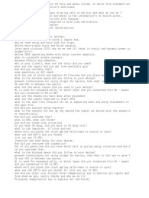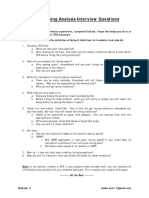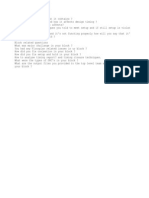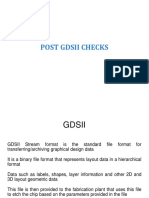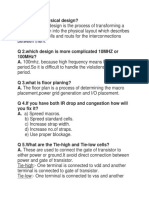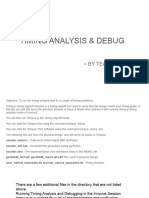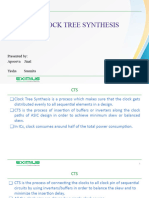0% found this document useful (0 votes)
143 views2 pagesHCL Interview Questions
The document outlines a comprehensive interview process for a position at HCL Tech, detailing various stages including recruiter rounds, initial technical interviews, and multiple panel discussions. Each section covers specific topics related to physical design, synthesis, timing closure, and power management, along with common questions that candidates may encounter. The structure emphasizes both theoretical knowledge and practical applications in the field of electronic design automation.
Uploaded by
apoorvaCopyright
© © All Rights Reserved
We take content rights seriously. If you suspect this is your content, claim it here.
Available Formats
Download as TXT, PDF, TXT or read online on Scribd
0% found this document useful (0 votes)
143 views2 pagesHCL Interview Questions
The document outlines a comprehensive interview process for a position at HCL Tech, detailing various stages including recruiter rounds, initial technical interviews, and multiple panel discussions. Each section covers specific topics related to physical design, synthesis, timing closure, and power management, along with common questions that candidates may encounter. The structure emphasizes both theoretical knowledge and practical applications in the field of electronic design automation.
Uploaded by
apoorvaCopyright
© © All Rights Reserved
We take content rights seriously. If you suspect this is your content, claim it here.
Available Formats
Download as TXT, PDF, TXT or read online on Scribd
/ 2

